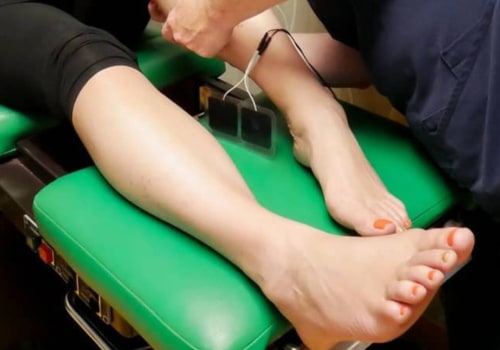Neuro Pain Consultants is a cutting-edge pain management practice that focuses on providing individualized treatment options to Detroit-area patients struggling with acute and chronic pain. Anticonvulsant and antidepressant drugs are usually the first line of treatment. Some neuropathic pain studies suggest that the use of nonsteroidal anti-inflammatory drugs (NSAIDs), such as Aleve or Motrin, may relieve pain. Some people may need a stronger pain reliever.
Be sure to talk to your doctor about the pros and cons of the medication you take. Used primarily for the treatment of epilepsy, these medications can also reduce nerve pain and relieve neuropathic symptoms. Just because you're prescribed antiepileptic medication doesn't mean you have epilepsy or are at risk of having it. The drug carbamazipine is generally used for people with a diagnosis of trigeminal neuralgia.
People with neuropathic pain syndromes seek evaluation and treatment with experts in the Division of Pain Neurology. Neuropathic pain syndromes can be caused by disorders affecting the brain or spinal cord (central nervous system) and the peripheral nervous system. Neuropathic pain is a chronic condition that can range from discomfort to severe burning or shooting pain. Finding the right pain management plan comes from identifying the underlying problem and addressing it accordingly.
Banner Health can work with you to design the right pain management plan for you to relieve symptoms and manage outbreaks caused by neurological pain disorders. If another condition, such as diabetes, is involved, better management of that disorder can ease the pain. Common pain relievers, such as nonsteroidal anti-inflammatory drugs or NSAIDs (for example, ibuprofen, aspirin, and acetaminophen) are usually not effective for neuropathic pain. Common causes of neuropathic pain include nerve pressure or nerve damage after surgery or trauma, viral infections, cancer, vascular malformations, alcoholism, neurological conditions such as multiple sclerosis, and metabolic conditions such as diabetes.
We can use traditional surgery to correct any structural abnormality detected that contributes to pain. Neuropathic pain can be cured and damaged nerves can regenerate, but only by addressing the underlying cause and following a long-term care plan. They treat migraines and other conditions such as failed back surgery syndrome, neuropathic pain, and complex regional pain syndrome. If you're suffering from neuropathic pain, talk to your doctor about the best options to help you manage the symptoms of neuropathic pain.
Because pain cannot be seen, it is difficult to explain to someone exactly how they feel, and therefore it is difficult for others to understand how much it can affect everyday life. To diagnose neuropathic pain, your doctor will start with your full medical history and look for factors that may lead to the condition. You may be asked questions about how you would describe your pain, when the pain occurs, or if something specific triggers it. Chronic pain conditions may be due to structural abnormalities of the spine of the nerves, although you may experience pain without having such problems.
Treatment by an interdisciplinary pain management team can be helpful for typically severe symptoms of neuropathy. Antidepressants have been widely used in the treatment of neuropathic pain for years because of their effectiveness in increasing neurotransmitters in the spinal cord that reduce pain signals.







